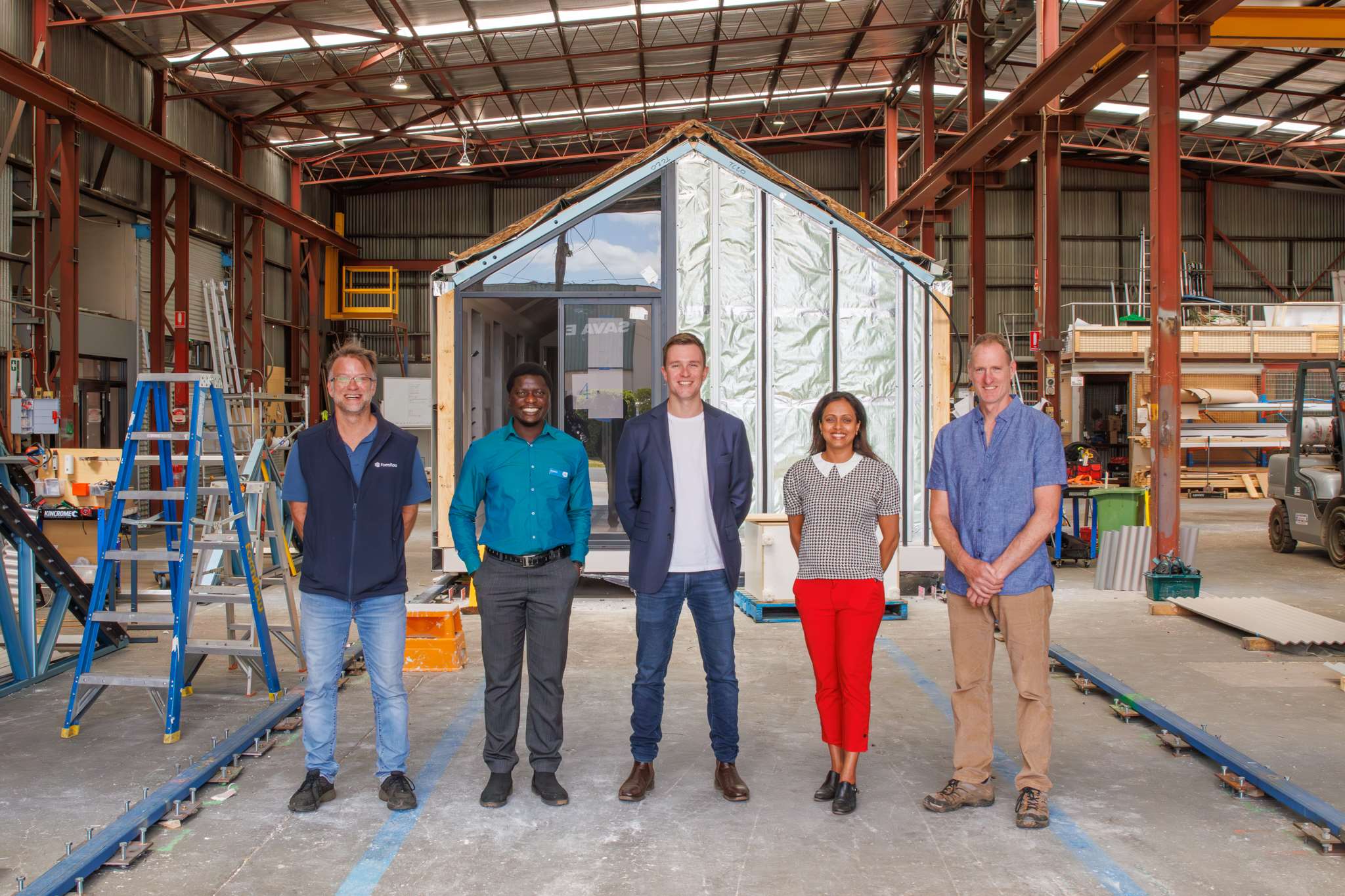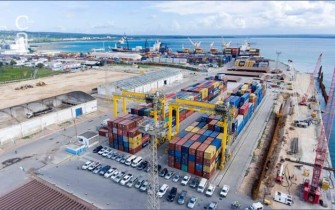Interview: Prof Dr Olubukola Tokede, Deakin University
FreeThe academic discusses sustainability in construction and the importance of life cycle assessments.

Sustainability is no longer an afterthought in the construction and infrastructure industry worldwide, it is becoming the norm, as governments race to mitigate the impact of climate change.
In November 2024, the COP29 climate conference held in Azerbaijan saw almost 200 countries pledge to triple financing to US$300 billion a year for developing countries to help protect against climate disasters and to enable them to capitalise on the clean energy boom.
The African continent should potentially receive a substantial part of this funding as it is arguably the most adversely impacted continent in the world by climate change even while being the lowest source of global carbon emissions. Add to this mix the fact that 70% of the continent’s building stock that will exist in 2040 is still to be constructed as per the UN Environment Programme (UNEP) and the case becomes ever more pressing.
Decarbonisation
Professor Dr Olubukola Tokede opines that decarbonisation of the built environment is a timely topic and constitutes an important scope for Africa.
“Decarbonisation will imply having to change our supply chains, processes, technologies and policies,” says Dr Tokede, who is the associate international head for the School of Architecture and Built Environment at Australia’s Deakin University.
“Given the inherent challenges in Africa (e.g. poverty, literacy, policy [instability]), decarbonisation seems a long shot currently. Perhaps, it would mean that Africa starts to become more ambitious and coordinated in recognising its place in stemming environmental pollution.
“Africa requires massive built environment investment and infrastructure to overcome many of its developmental challenges. However, decarbonisation will [mean] aligning our goals with the rest of the world in mitigating the challenges of climate change.
“There is some progress with green building rating systems and there are interests in circularity, but there is still a long way to go in ensuring mainstream organisations and stakeholders adopt decarbonisation principles.”
Life Cycle Assessments
Importantly, when it comes to sustainability in construction, Dr Tokede, whose passion is sustainable futures, has been a Life Cycle Assessment Certified Practitioner (LCACP) since 2019. The certification enables him to deal with Life Cycle Assessments (LCA), defined as a systematic approach of quantifying the environmental impacts of products/services/systems across their entire life cycle, thereby increasing the efficiency of resource usage and decreasing liabilities. LCAs can be used to study the environmental impact of either a product/service/system or the function it is designed to perform.
The key elements to an LCA are identifying and quantifying the environmental loads involved, such as the energy and raw materials consumed, and the emissions and wastes generated; evaluating the potential environmental impacts of these loads; and assessing the options available for reducing these environmental impacts.
The LCACP is administered by the American Centre of Life Cycle Assessment (ACLCA) and allows certified practitioners to practice in the US, Australia and New Zealand.
“LCAs are useful in guiding decisions to support various strategies that can mitigate or reduce environmental emissions,” says Dr Tokede. “In the construction and infrastructure industry, an LCA is particularly useful in comparing various building materials, e.g. steel vs timber, and also different methods, e.g. prefabrication vs conventional techniques.
“LCAs, especially those that inform environmental product declarations, have recently been considered to support digital passports for materials in Europe, and this information will support procurement decisions for government and relevant stakeholders.”

LCA in Africa
The academic, however, notes that LCAs have yet to play a major role in African construction and infrastructure.
“I have not had too much on-the-ground experience of LCA in the African context,” says Dr Tokede. “I have delivered talks pertaining to the use of sustainability and virtual reality in construction in Africa. I have also delivered talks on the potential of waste-to-energy in Africa and the role of LCA in making this transition effective. Furthermore, I have had opportunities to network with stakeholders working across LCA in Africa and supported research initiatives on LCA in Africa.”
Notwithstanding this, Dr Tokede has co-founded the African LCA Initiative (ALIES) as well as a steering committee to support its governance. ALIES is supported by the Life Cycle Initiative, hosted by the UNEP, and is aiming to be an umbrella organisation that connects LCA practitioners, scholars and enthusiasts to encourage the appropriate use, development and implementation of LCA in Africa.
In mid-September, ALIES held its first in-person event on the sidelines of the 12th Life Cycle Management (LCM) conference in Italy, where it discussed the urgent need for mainstreaming LCA in Africa.
Academia and Industry
Dr Tokede also notes that academia needs to be more involved in the shaping of policies that support the activities of the construction sector. “Leaving policy development to government personnel that may have limited experience and exposure [to the sector] could be detrimental to the development of the construction industry across the continent,” he says.
“Industry could support the activities of academia by offering/sponsoring prizes for theses at the undergraduate and postgraduate levels, along with organising competitions to support the identification and recruitment of talent into the construction industry.”
Dr Tokede opines that the lack of innovative financing, government reforms and suitable partnerships are continuing to limit Africa’s infrastructure development and construction. “Furthermore, lack of basic amenities such as security, electricity access and public [infrastructure] tend to be frontline for many African governments, leading to insufficient progress in infrastructure development and construction,” he says.
“There is also the need for enhancing the workforce in Africa and ensuring all tiers of the workforce are equipped to deliver projects. In addition, we need to pay attention to celebrating the ‘wins’ in infrastructure development and construction. There are many awe-inspiring projects that have been developed in Africa, but which have not been keenly recognised across the continent and beyond.
“Lack of finance is hampering infrastructure development and construction in Africa. Foreign direct investment accounts for approximately 70% of private investment in infrastructure and this tends to be mostly in the extractive sector. To plug this funding gap, it will be helpful for African governments to seek more innovative financing models and also seek partnerships to support the delivery of infrastructure.
“More importantly, the stability of government policies and entrenchment of democratic principles in [governance] will enhance the confidence of the international community in supporting initiatives in Africa.”
Dr Tokede is cognisant of the importance of research and data in supporting the activities of the construction industry in Africa. Organisations such as ConstructAfrica can be “supportive in providing the relevant data to ensure stakeholders are continually benchmarked objectively on their performance (i.e. cost, time, quality) and, hopefully, environmental sustainability in the foreseeable future”, he says.
“ConstructAfrica can therefore provide real-time performance indicators that can facilitate financing opportunities for contractors and infrastructure developers. This information will be of interest particularly in attracting relevant investors to Africa.”
Top photo: Prof Dr Olubukola Tokede (Source: International Life Cycle Academy)
Discover
myConstructAfrica
Your one-stop-shop for information and actionable intelligence on the construction and infrastructure pipeline in African countries
- News, analysis and commentary to keep up-to-date with the construction landscape in Africa.
- Industry Reports providing strategic competitive intelligence on construction markets in African countries for analysts and decision-makers.
- Pipeline Platform tracking construction and infrastructure project opportunities across Africa from conception to completion.
- Access to contact details of developers, contractors, and consultants on construction projects in Africa.
- News and analysis on construction in Africa.
- Industry Reports on construction markets in African countries.
- Pipeline platform tracking construction and infrastructure projects in Africa.
- Access to contact details on construction projects in Africa.




